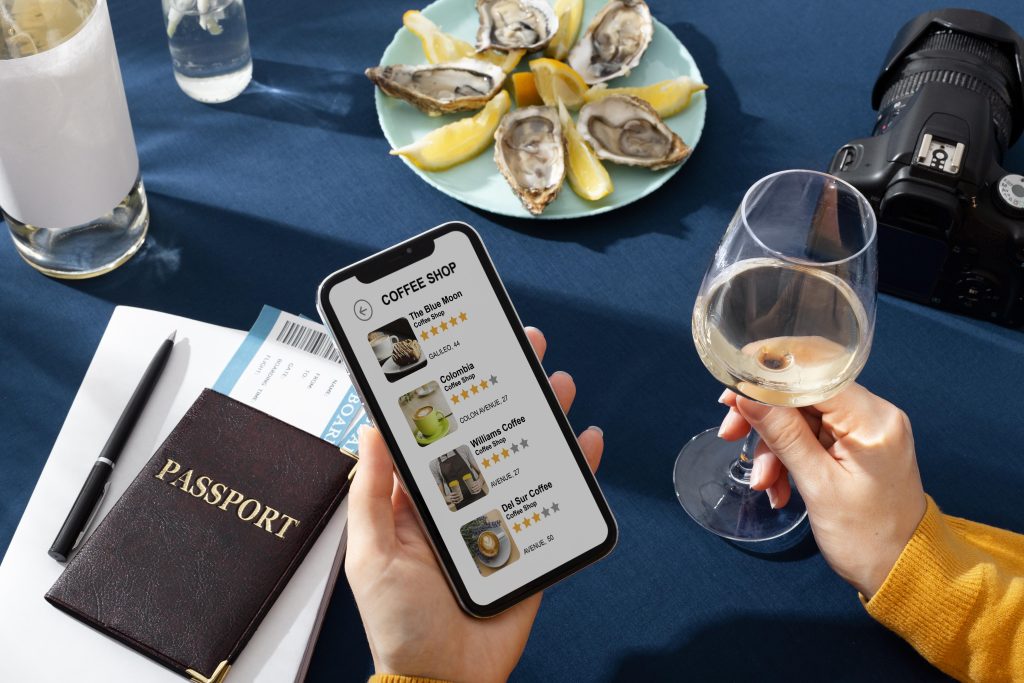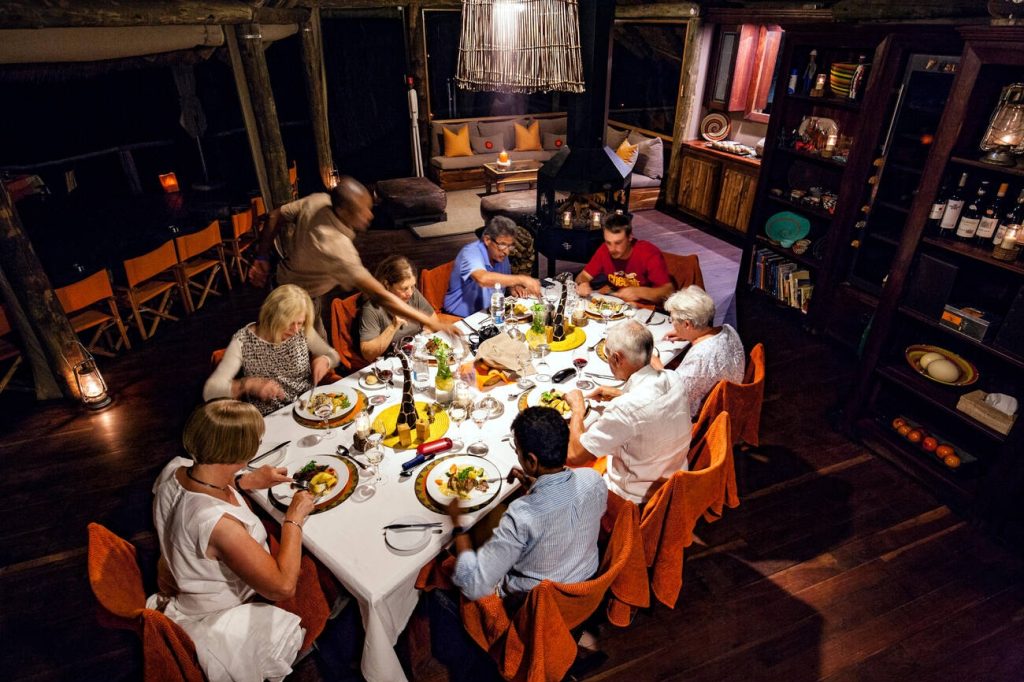Are you a wine enthusiast eager to explore the world of authentic French wines online? Navigating the online market for these exquisite wines can be a thrilling and rewarding experience. In this article, we’ll guide you through the intricacies of the French wine e-commerce market, providing valuable insights on factors driving online sales, the influence of social networking platforms, and different categories of wine e-commerce sites. Get ready to immerse yourself in the convenience, affordability, and vast selection of authentic French wines available at your fingertips.
Contents
E-Commerce Growth in France
You may be interested to know that e-commerce growth in France has had a significant impact on the wine market. With a value of 1.4 billion, the French wine e-commerce market has seen dynamic growth rates of over 30% per year from 2008-2017. Moreover, the number of e-commerce wine players in France has nearly doubled in less than a decade, reaching close to 400.
Overview
The French wine e-commerce market has experienced significant growth in recent years. With the rise of online marketplaces, consumers now have access to a wide selection of authentic French wines at competitive prices. One of the key factors driving this growth is the authentication process and quality assurance that online wine sellers provide. Through rigorous checks and certifications, these sellers ensure that the wines they offer are genuine and of high quality. Additionally, mobile optimization has played a crucial role in the success of the French wine e-commerce market. With more people using their smartphones to shop online, wine brands have optimized their websites and platforms to provide a seamless mobile experience. This has allowed consumers to easily browse, purchase, and receive their favorite French wines with just a few taps on their screens.
User penetration
With the rise of online marketplaces and the increasing availability of authentic French wines, consumer interest and participation in e-commerce growth in France has significantly increased. This presents a vast market potential for wine brands looking to tap into the online wine market. However, with the growing market, there is also increased online competition, making it crucial for brands to differentiate themselves and stand out. Understanding the target audience and their preferences is key to developing successful online marketing strategies. Wine brands need to focus on user preferences, such as attractive pricing and convenient home delivery, to attract online buyers. By leveraging effective online marketing strategies, wine brands can successfully navigate the French wine e-commerce market and capture a share of the growing online consumer base.
Consumer behavior
As online marketplaces continue to expand and the availability of authentic French wines increases, consumer behavior regarding e-commerce growth in France has undergone significant changes. Consumers now heavily rely on online recommendations and reviews when making purchasing decisions. They value convenience and affordability, with attractive prices being a major factor driving their online wine purchases. Additionally, consumers have become more discerning in their preferences, seeking out specific wine brands that align with their taste and style. However, brand loyalty is not as strong in the e-commerce space compared to traditional retail channels. Online reviews play a crucial role in shaping consumer perceptions and influencing their buying decisions. Therefore, it is essential for wine brands to actively engage with their customers and ensure positive online experiences to foster loyalty and encourage repeat purchases.
Influence of Social Networking Platforms
Social networking platforms greatly impact the decision-making process when it comes to purchasing wine online. Here are five ways in which they influence consumer perceptions:
- Social media impact: Social media platforms provide a space for wine enthusiasts to share their experiences, recommendations, and reviews. This social influence greatly impacts consumer decisions.
- Millennial influence: Younger millennial wine drinkers in France are more likely to use social networking platforms to gather information and make purchasing decisions. Their influence is growing in the online wine market.
- Mobile optimization: As more people access social media platforms through mobile devices, wine brands need to optimize their content for mobile platforms. This ensures a seamless user experience and increases the chances of engagement.
- Online influencers: Influencers on social media platforms have the power to sway consumer opinions and purchasing decisions. Their recommendations and endorsements carry weight, making them valuable assets for wine brands.
- Consumer perceptions: Social networking platforms shape consumer perceptions of wine brands. Positive reviews and engaging content can create a favorable image, while negative feedback can deter potential buyers.
Understanding the impact of social networking platforms is crucial for wine brands navigating the online market. By leveraging social media effectively, wine brands can enhance their visibility, engage with consumers, and ultimately drive sales.
Factors Driving Online Wine Sales
To drive online wine sales, you need to focus on factors that attract consumers and prompt them to make a purchase. Several key factors play a crucial role in driving online wine sales in France. These factors include pricing strategies, delivery options, customer preferences, online marketing tactics, and the competitive landscape. Understanding and effectively leveraging these factors can help wine brands succeed in the online market.
One of the primary factors driving online wine sales is pricing. Attractive price tags have been cited by 51% of survey participants as the main reason for shopping for wine online. Wine brands need to provide superior value and competitive pricing to attract online buyers. Additionally, delivery costs play a significant role, with 38% of respondents considering it an important factor. Emphasizing the convenience and affordability of home delivery for everyday wines priced under 10 is crucial.
Moreover, customer preferences and online marketing tactics are essential in driving online wine sales. Understanding the preferences of French wine buyers and aligning strategies accordingly is crucial. Online influencers and word-of-mouth buzz on social media can significantly impact consumer perceptions. Wine brands need to adapt a mobile-centric mentality and optimize wine content for mobile platforms.
Lastly, it is important to consider the competitive landscape. With the growing trend of online wine sales, large French hypermarkets and supermarkets are expected to play a more significant role, potentially creating more competition for traditional wine brands. By staying informed about the competitive landscape and implementing effective pricing strategies, delivery options, customer preferences, and online marketing tactics, wine brands can successfully navigate the online market for authentic French wines.
Different Categories of Wine E-Commerce Sites
When navigating the online market for authentic French wines, it is important to understand the different categories of wine e-commerce sites. These categories include:
- Producers vs. Private Sales: Producers sell their own wines directly to consumers, offering a unique opportunity to purchase wines that may not be available elsewhere. Private sales, on the other hand, involve limited-time offers of select wines at discounted prices, creating a sense of exclusivity.
- Wine Merchants vs. Large Retailers: Wine merchants specialize in curating a selection of wines from various producers, providing a diverse range of options for consumers. Large retailers, on the other hand, offer a wider selection of wines, including both popular and lesser-known brands.
- Wine Clubs vs. Wine Auctions: Wine clubs offer subscription-based services, providing members with regular shipments of curated wines. Wine auctions, on the other hand, allow consumers to bid on rare and collectible wines, offering a thrilling experience for wine enthusiasts.
- Direct to Consumer vs. Traditional Models: Direct to consumer models involve wineries selling their products directly to consumers through their own e-commerce platforms, cutting out the middleman. Traditional models involve retailers purchasing wines from producers and selling them to consumers.
- Hypermarkets vs. Supermarkets: Hypermarkets are large retail stores that offer a wide range of products, including wines, at competitive prices. Supermarkets, on the other hand, are smaller in scale but still offer a decent selection of wines.
Understanding these different categories of wine e-commerce sites will help you navigate the online market for authentic French wines and find the best platform to suit your preferences and needs.
Navigating the French Wine E-Commerce Market
If you’re looking to navigate the French wine e-commerce market, understanding the various categories of wine websites will be essential. One important aspect to consider is mobile optimization. With the rise of smartphones and tablets, consumers are increasingly using these devices to make online purchases. Therefore, wine brands need to ensure that their websites are optimized for mobile platforms to provide a seamless user experience.
Another strategy to consider is the Direct to Consumer (DTC) approach. By selling directly to consumers, wine brands can bypass traditional distribution channels and have more control over their pricing and branding. This can be particularly effective in the French wine e-commerce market, where hypermarkets and supermarkets currently dominate sales. By implementing a DTC strategy, wine brands can differentiate themselves and potentially attract a larger share of the online market.
When it comes to pricing strategies, attractive price tags are a significant factor driving online wine sales in France. Many consumers are looking for affordable options and value for their money. Wine brands need to provide competitive pricing to attract online buyers, especially for everyday wines priced under 10 euros, which are the most popular for home delivery.
Lastly, social media influencers play a crucial role in shaping consumer perceptions and purchase decisions. By leveraging the influence of social networking platforms, wine brands can reach a wider audience and build brand awareness. Collaborating with social media influencers can help generate word-of-mouth buzz and increase the visibility of their products in the French wine e-commerce market.
Subscription Options
Explore the subscription options available for accessing exclusive content and benefits in the French wine e-commerce market.
- Benefits of subscription: Subscribing to a French wine e-commerce platform offers numerous benefits. You can gain access to exclusive content, such as articles, videos, and expert recommendations, that can enhance your wine knowledge. Additionally, subscribers often receive special discounts, early access to new releases, and invitations to exclusive events.
- Pricing options: Different subscription plans are available to cater to different budgets and preferences. You can choose from options like digital subscriptions, print subscriptions, or a combination of both. Prices may vary depending on the level of access and additional perks offered.
- Subscription trial period: Many platforms offer a trial period for new customers. You can try unlimited access for a nominal fee, such as $1 for 4 weeks, to experience the benefits of the subscription. During this trial period, you can cancel anytime without any obligations.
- Different subscription plans: Explore individual subscription plans that align with your specific interests and needs. Whether you are a wine enthusiast, collector, or professional, there are subscription plans tailored to your preferences. These plans may include different levels of access, such as access to rare and limited-edition wines or personalized wine recommendations.
- Subscription cancellation policy: It is important to understand the subscription cancellation policy before subscribing. Make sure to review the terms and conditions regarding cancellation and any associated fees. This will ensure that you have the flexibility to cancel your subscription if needed.
Useful Links
To access support, view site tips, visit the help center, or contact customer support, you can find useful links on the French wine e-commerce platform. These links will provide you with valuable resources to navigate the online market for authentic French wines. Whether you need assistance with your purchase, want to stay updated on market trends, or have any questions, the platform’s online resources and customer support will be there to assist you.
To make it easier for you to find the information you need, here are some useful links you can find on the French wine e-commerce platform:
| Useful Links | Description |
|---|---|
| Access support | Get help and assistance with any issues you may encounter |
| View site tips | Find useful tips and tricks for navigating the platform |
| Visit the help center | Explore comprehensive guides and FAQs to answer your questions |
| Contact customer support | Reach out to the platform’s dedicated customer support team |
These links will provide you with the necessary tools and support to make informed decisions in the online market for authentic French wines. Whether you need help with competitive pricing, want to stay updated on market trends, or want to leverage the influence of social media, these resources will be invaluable in your wine-buying journey. So, take advantage of these useful links and enjoy the convenience and quality of French wines in the online market.
Legal & Privacy
When considering the legal and privacy aspects of navigating the online market for authentic French wines, it is important to understand the terms and conditions, privacy policy, and cookie policy of the e-commerce platforms you are using. Here are some key points to keep in mind:
- Data protection: Ensure that the e-commerce platform you choose has proper measures in place to protect your personal information and data.
- Cookie policy: Familiarize yourself with the platform’s cookie policy to understand how your online activities and preferences are tracked and utilized.
- Privacy concerns: Be aware of any potential privacy concerns when sharing personal information or making transactions online.
- Legal regulations: Stay informed about the legal regulations surrounding online wine sales, such as age verification and shipping restrictions.
- Terms & conditions: Read and understand the terms and conditions of the e-commerce platform to know your rights and responsibilities as a consumer.




